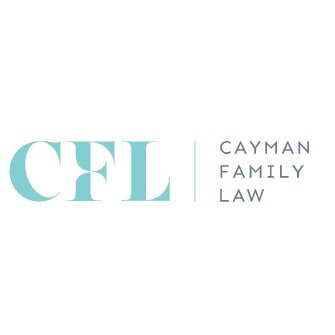Best Collaborative Law Lawyers in Cayman Islands
Share your needs with us, get contacted by law firms.
Free. Takes 2 min.
Free Guide to Hiring a Family Lawyer
Or refine your search by selecting a city:
List of the best lawyers in Cayman Islands
About Collaborative Law in Cayman Islands:
Collaborative Law is a method of resolving disputes where both parties work together with trained professionals to reach a mutually agreeable solution. In the Cayman Islands, Collaborative Law follows a similar framework as in other jurisdictions, emphasizing communication, cooperation, and problem-solving.
Why You May Need a Lawyer:
You may need a lawyer in Collaborative Law if you are facing a legal dispute with a desire to resolve it amicably. A lawyer can provide legal advice, represent your interests, and ensure that your rights are protected throughout the collaborative process.
Local Laws Overview:
In the Cayman Islands, Collaborative Law operates under the Legal Practitioners Law and the Civil Procedure Rules. It is important to be familiar with these laws, as they set out the procedures and requirements for collaborative agreements and settlements.
Frequently Asked Questions:
1. What is the role of a lawyer in Collaborative Law?
A lawyer in Collaborative Law provides legal advice, representation, and guidance throughout the process to help you achieve a fair resolution.
2. Can Collaborative Law be used for all types of disputes?
Collaborative Law is commonly used for family law matters, such as divorce and child custody, but it can also be utilized for other civil disputes.
3. How long does the Collaborative Law process typically take?
The timeline for Collaborative Law varies depending on the complexity of the dispute and the willingness of both parties to cooperate. On average, it can take several months to reach a resolution.
4. What happens if an agreement cannot be reached through Collaborative Law?
If an agreement cannot be reached, both parties will need to hire new lawyers and proceed with traditional litigation in court.
5. How much does Collaborative Law cost?
The cost of Collaborative Law will vary depending on the complexity of the dispute and the amount of time it takes to reach a resolution. It is important to discuss fees and payment arrangements with your lawyer.
6. Are Collaborative Law agreements legally binding?
Yes, Collaborative Law agreements are legally binding once both parties have signed the final agreement. It is important to have a lawyer review the agreement to ensure it is fair and legally enforceable.
7. Can I still go to court if I start the Collaborative Law process?
If you start the Collaborative Law process but are unable to reach an agreement, you can still go to court to resolve your dispute. However, you will need to hire new lawyers to represent you in court.
8. How is confidentiality maintained in Collaborative Law?
Confidentiality is a key component of Collaborative Law, and all discussions and information shared during the process are kept private and cannot be used against you in court.
9. What are the benefits of Collaborative Law over traditional litigation?
Collaborative Law offers a more cooperative and respectful approach to resolving disputes, allowing both parties to have a say in the outcome and often resulting in a quicker and less costly resolution than traditional litigation.
10. How do I find a Collaborative Law lawyer in the Cayman Islands?
You can search for Collaborative Law lawyers in the Cayman Islands through legal directories, bar associations, or by asking for recommendations from friends or family who have used Collaborative Law services.
Additional Resources:
For additional resources on Collaborative Law in the Cayman Islands, you can contact the Cayman Islands Legal Practitioners Association or the Family Resource Centre, which may have information and referrals for Collaborative Law services.
Next Steps:
If you are in need of legal assistance in Collaborative Law, the next step is to schedule a consultation with a Collaborative Law lawyer in the Cayman Islands. During the consultation, you can discuss your case, ask any questions you may have, and decide on the best course of action to resolve your dispute through Collaborative Law.
Lawzana helps you find the best lawyers and law firms in Cayman Islands through a curated and pre-screened list of qualified legal professionals. Our platform offers rankings and detailed profiles of attorneys and law firms, allowing you to compare based on practice areas, including Collaborative Law, experience, and client feedback.
Each profile includes a description of the firm's areas of practice, client reviews, team members and partners, year of establishment, spoken languages, office locations, contact information, social media presence, and any published articles or resources. Most firms on our platform speak English and are experienced in both local and international legal matters.
Get a quote from top-rated law firms in Cayman Islands — quickly, securely, and without unnecessary hassle.
Disclaimer:
The information provided on this page is for general informational purposes only and does not constitute legal advice. While we strive to ensure the accuracy and relevance of the content, legal information may change over time, and interpretations of the law can vary. You should always consult with a qualified legal professional for advice specific to your situation.
We disclaim all liability for actions taken or not taken based on the content of this page. If you believe any information is incorrect or outdated, please contact us, and we will review and update it where appropriate.
Browse collaborative law law firms by city in Cayman Islands
Refine your search by selecting a city.












